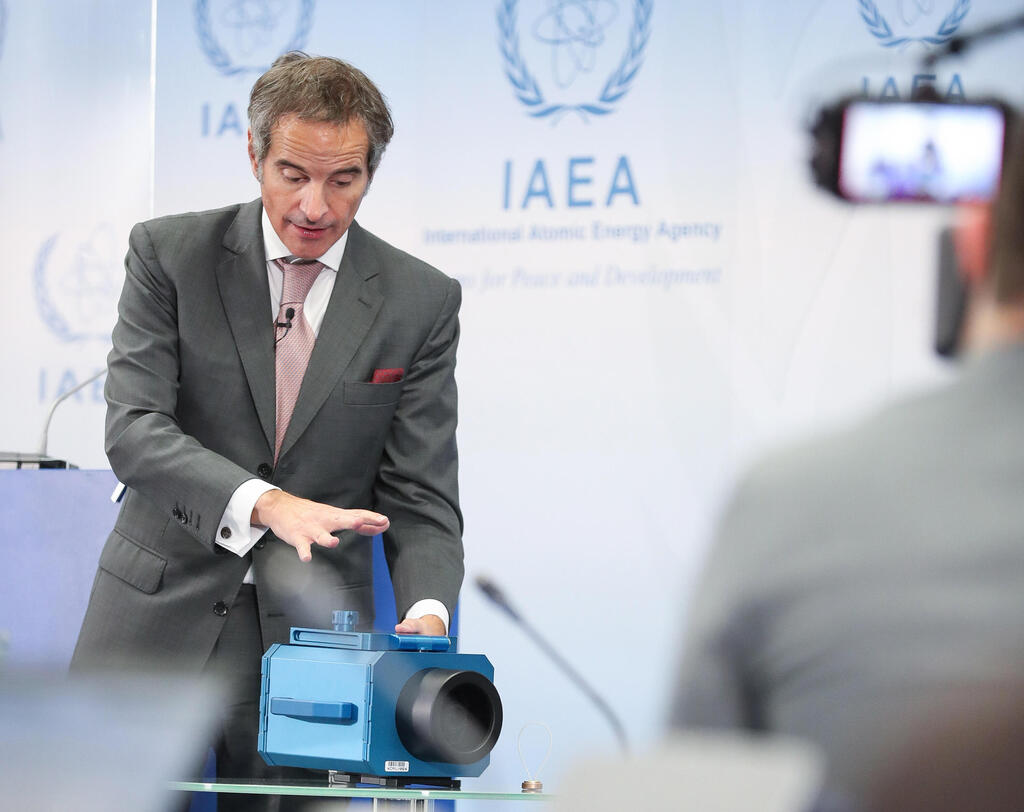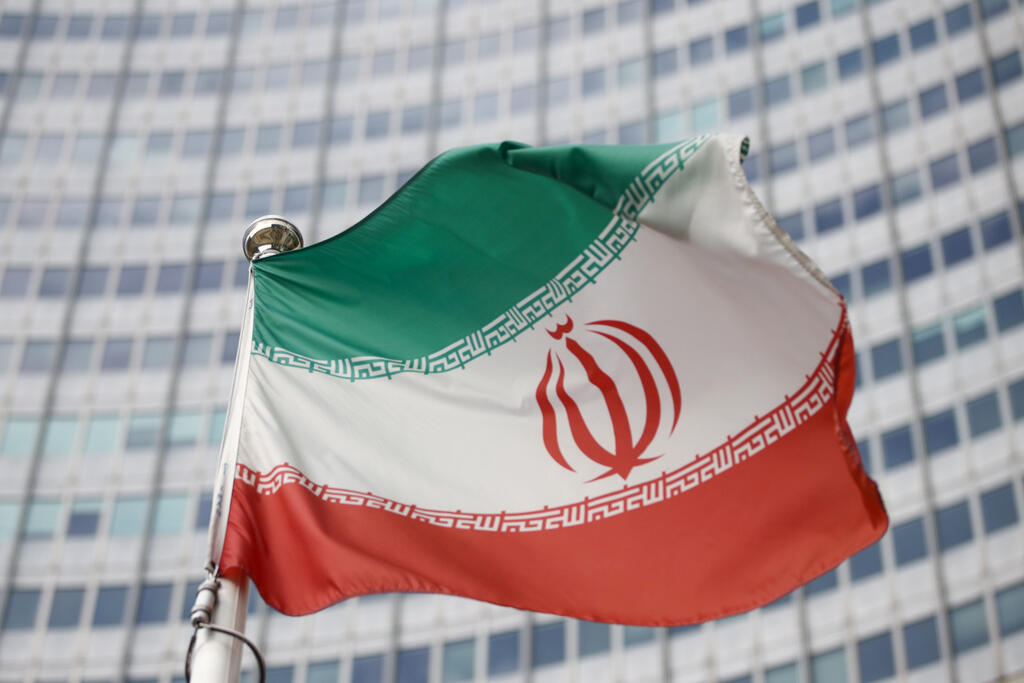Getting your Trinity Audio player ready...
The United States, France, Britain, and Germany are pushing for the UN nuclear watchdog's Board of Governors to rebuke Iran for failing to answer longstanding questions on uranium traces at undeclared sites, a draft resolution seen by Reuters showed.
The move is likely to anger Iran, which generally bristles at such resolutions, and that in turn could damage prospects for rescuing the 2015 Iran nuclear deal. Indirect talks on that between Iran and the United States are already stalled.
2 View gallery


Head of the IAEA Rafael Grossi presents a camera installed in the Iranian nuclear facility
(Photo: EPA)
Iran, which insists its nuclear program is peaceful while the West says it is moving closer to being able to build a bomb, would respond to any "unconstructive action" taken at next week's board meeting, the Iranian Foreign Ministry said.
Western powers had held off submitting a draft resolution to previous quarterly meetings of the International Atomic Energy Agency's 35-nation board on this issue to avoid derailing talks. But those talks have not been held since March.
The issue has now come to a head since the IAEA told member states this week that Iran had not given it credible answers on the particles found at three mainly old but undeclared sites, although both sides agreed in March to revive discussions aimed at resolving such open issues by now.
The IAEA board "calls upon Iran to act on an urgent basis to fulfill its legal obligations and take up immediately the (IAEA) director general's offer of further engagement to clarify and resolve all outstanding safeguards issues", the draft text sent to IAEA member states and seen by Reuters on Wednesday said.
2 View gallery


The Iranian flag waves in front of the International Atomic Energy Agency (IAEA) headquarters
(Photo: Reuters)
The text, dated Tuesday, did not say which countries drafted it. Two diplomats said it was the United States and the so-called E3, namely France, Britain, and Germany.
The draft has yet to be formally submitted for the meeting which starts on Monday. Board members could adopt it unopposed or put it to a vote, but the draft is likely to be adjusted before it is submitted.
"We will naturally respond in a strong and appropriate manner to any unconstructive action" by the board, Iranian Foreign Ministry spokesman Saeed Khatibzadeh said, according to the ministry's Telegram channel.

